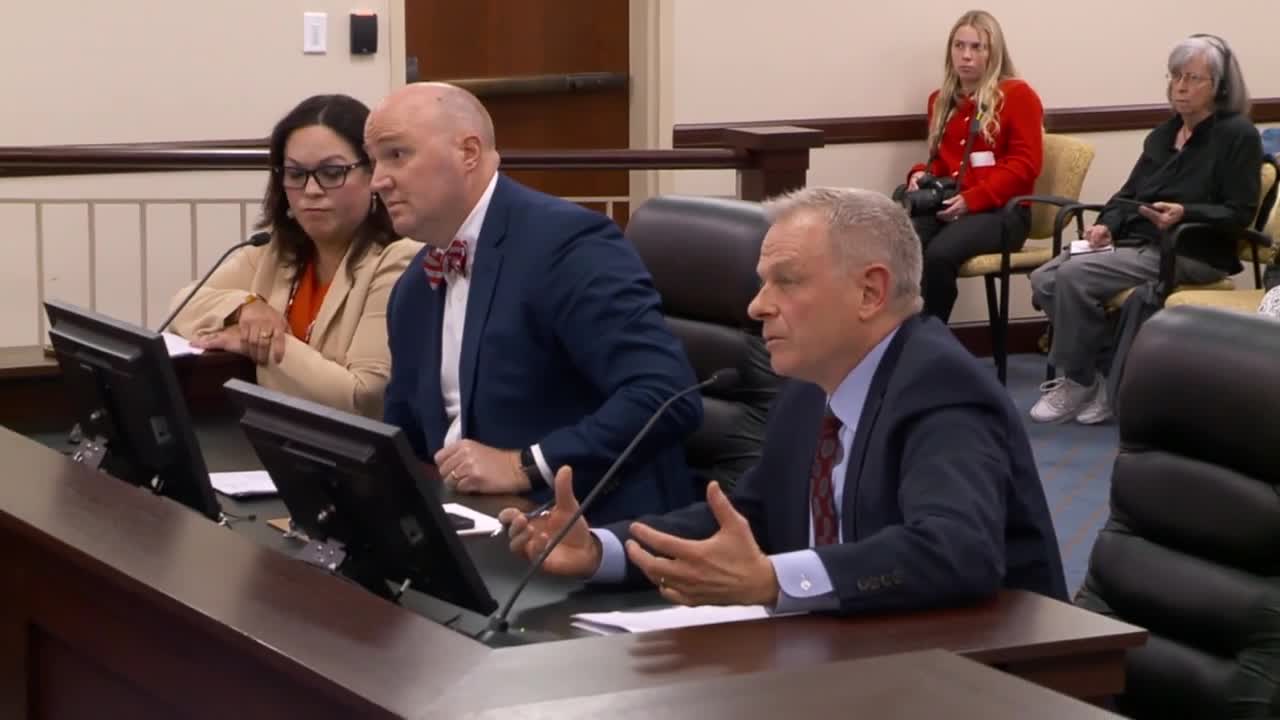SALT LAKE CITY — A hearing of the Utah State Legislature's Redistricting Committee got heated as Democrats complained they were not being given access to data being used to generate maps being put forward by Republicans on the committee.
The committee did not vote to advance any map. Instead, Utahns will get to weigh in on all the maps submitted in the court-ordered redistricting process. The redistricting committee will reconvene on Oct. 6 ahead of a special session of the Utah legislature and pick one. If the entire legislature approves it? The map goes back to the judge for her approval.
On Wednesday, Senate Minority Leader Luz Escamilla, D-Salt Lake City, and Rep. Doug Owens, D-Millcreek, presented a map they had created to be considered. Rep. Owens had been chastised by the committee chairs for attempting to question the Democrats' expert, political science professor Dr. Daniel Magleby, as if they were in court instead of in a legislative hearing and speaking to the map.

Rep. Owens addressed the map, a version of one created by the Independent Redistricting Commission created by Prop. 4, arguing his proposal was "superior" in how it treats a political party. But when tried to suggest the maps created by the GOP majority's expert, Dr. Sean Trende, may not be legal, it brought a sharp rebuke.
"We suspect there was a dataset incorporated into the test Dr. Trende applied and we are unable to verify. It’s as if we're told to buy a car and we can't lift the hood and look," Rep. Owens said.
"That’s a pretty big allegation," Rep. Candice Pierucci, R-Herriman, replied.
"I’m going to call point of order, representative," Sen. Scott Sandall, R-Tremonton, said. "You just demeaned us. You just demeaned us. To the public, I will not have that. You called us somehow hiding or lying about everything we've presented to say that our maps, these maps, were not developed with any political data. You just misrepresented that and that’s out of order!"
"May I apologize and clarify, senator, I appreciate that. That’s not my intention," Rep. Owens said.
"It was what was said," Sen. Sandall fumed.
"We have a suspicion."
"You didn’t say you have a suspicion, you called us out."
Sen. Escamilla said data had ultimately been provided, but not under the time constraints to prepare for the hearing.
Utah legislature unveils new maps and a bill tweaking redistricting:
The committee did review the maps created by Dr. Trende for the legislature, going over whether they met the criteria of Prop. 4. Each map had advantages and disadvantages in the way congressional districts were divided based on cities and counties split, travel time and other factors. Lawmakers can't consider maps created by the Independent Redistricting Commission as the judge had already thrown out the law that those were submitted under.
Democrats have raised concerns about Dr. Trende's impartiality, but Republicans also criticized Dr. Magelby for past social media posts he's made where he criticized the Utah legislature as being "authoritarian" and suggested his own partisan bias.
"I don't think you're authoritarians," Dr. Magleby said after being confronted with the posts, but added that he wanted to see fair maps imposed.
Rep. Stephanie Gricius, R-Eagle Mountain, raised concerns about the Escamilla/Owens map and how it was drawn, saying there were a lot of "hooks" in neighborhoods and questioned if they were to keep certain houses in certain districts. Dr. Magleby said they followed Census data.
Public comment brought people attacking the court ruling and the legislature. Some decried an "activist judge" and defended the legislature, while others accused lawmakers of ignoring the will of voters who passed Prop. 4.
A judge sided with the League of Women Voters of Utah and Mormon Women for Ethical Government who sued the legislature arguing it improperly overrode voter-approved Prop. 4 and disregarded maps submitted by an independent redistricting commission with their own. They argued the result in Utah's congressional district was partisan gerrymandering to favor Republicans.
The legislature has insisted it has the sole constitutional power to conduct redistricting, but after the Utah Supreme Court refused to grant a stay, agreed to comply with the judge's order and draw new maps that comply with Prop. 4.




